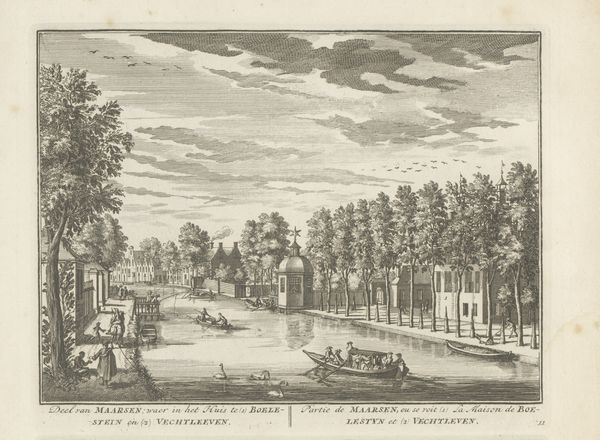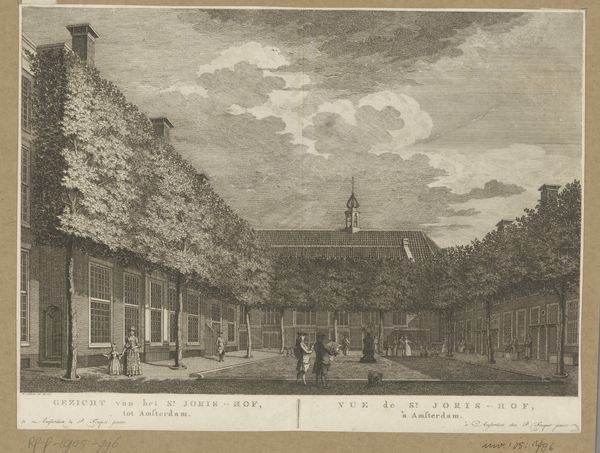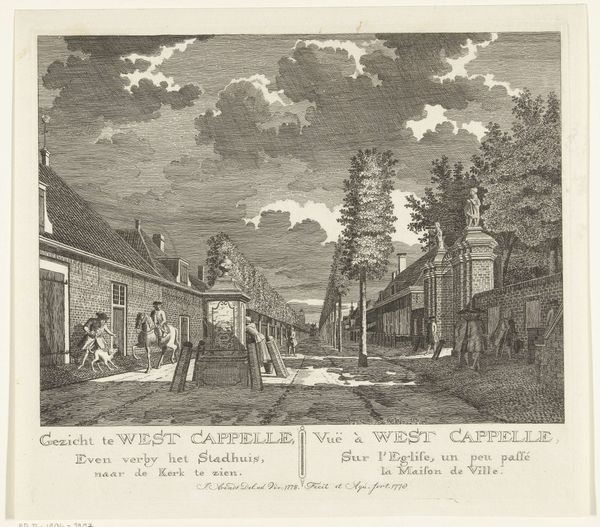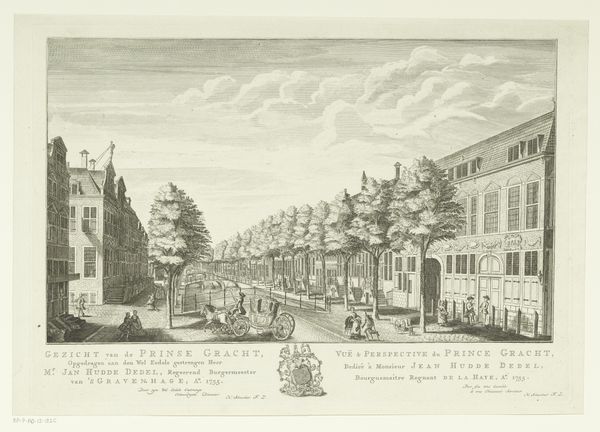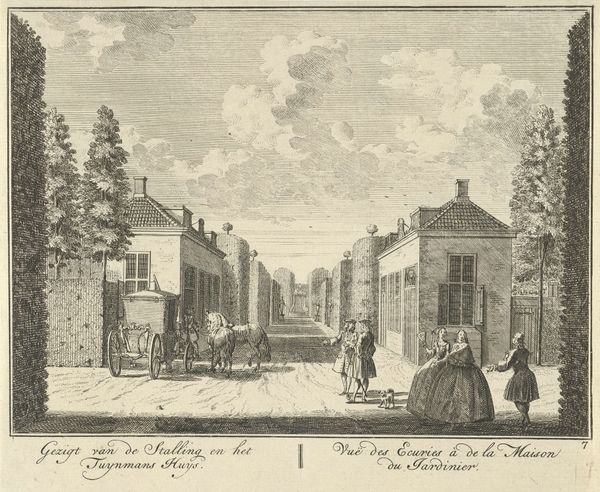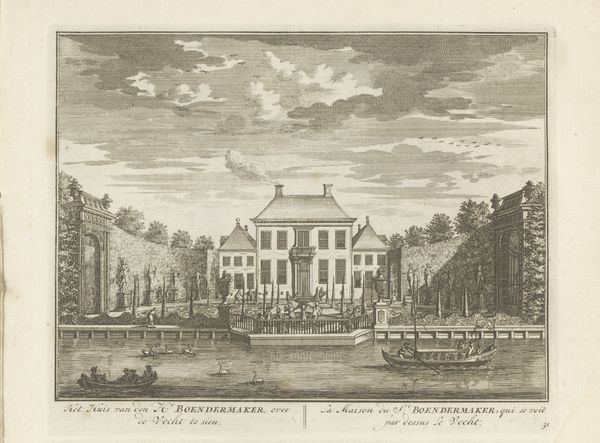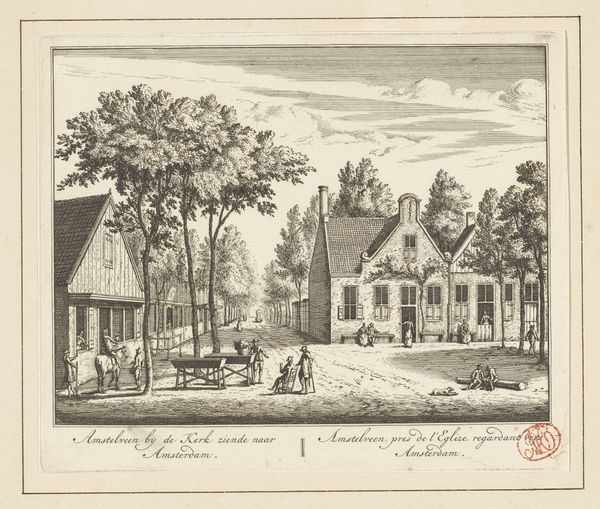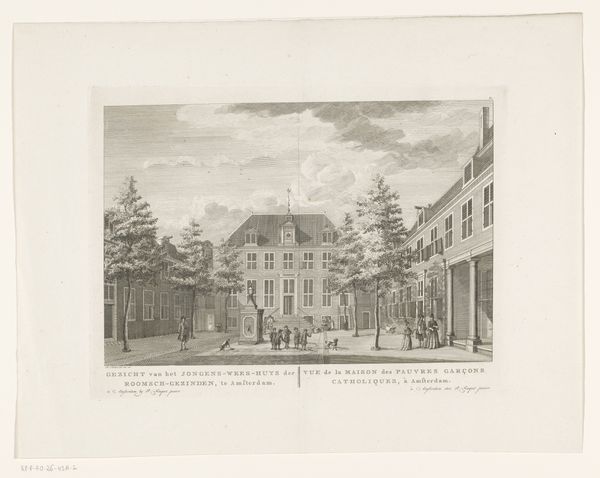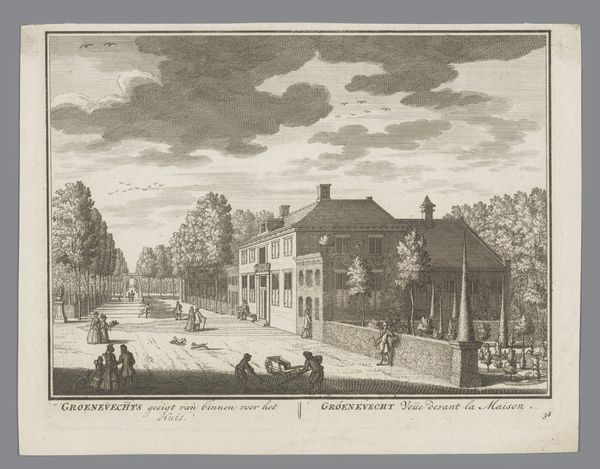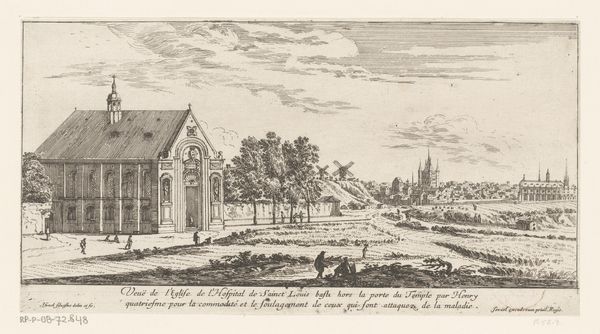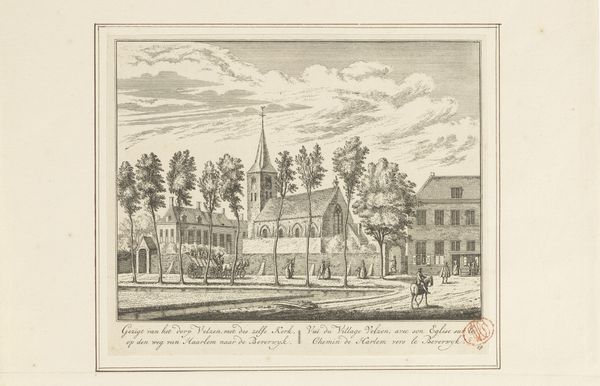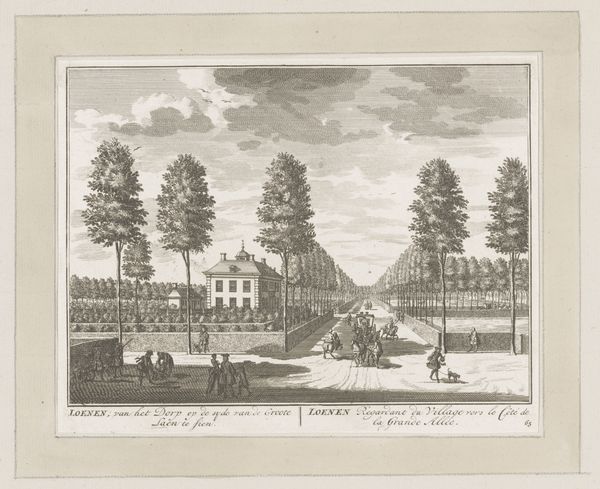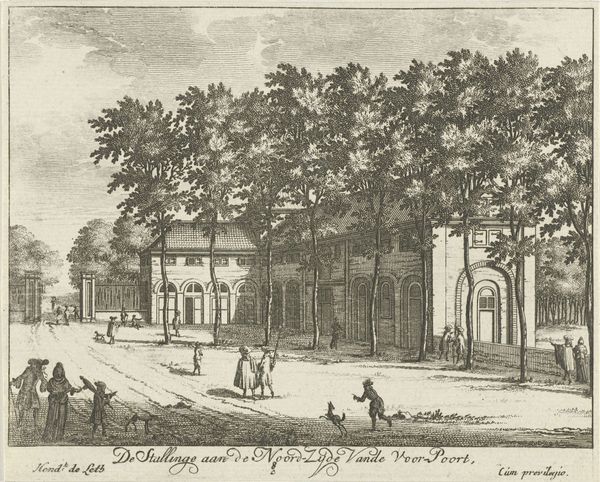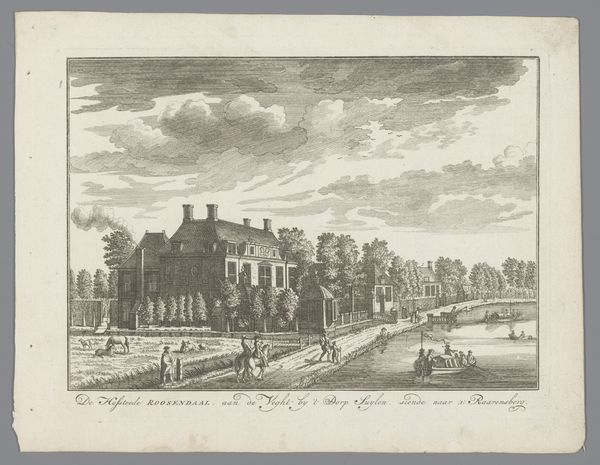
Gezicht op paardenstal en het speelhuis van de buitenplaats Driemond 1790
0:00
0:00
danielstopendaal
Rijksmuseum
engraving
#
neoclacissism
#
landscape
#
cityscape
#
engraving
Dimensions: height 166 mm, width 203 mm
Copyright: Rijks Museum: Open Domain
Curator: What are your first thoughts on this 1790 engraving by Daniël Stopendaal, "View of the Driemond Estate's Horse Stable and Playhouse?" Editor: It feels very…staged. Like everyone is performing for the viewer. The scene appears meticulously planned and the figures are like little statues. What's your take? Curator: Precisely! That "staged" feeling points to the social codes embedded within this seemingly innocent landscape. Consider the historical context. This estate represents wealth, power, and privilege during the late 18th century. What do you think the artist is trying to say about class and leisure? Editor: I guess the orderliness, the formality of the garden and the people… it’s about demonstrating control, isn’t it? Control over nature, over appearance, over one’s own image and by extension over social order? Curator: Exactly. And it’s not accidental that the engraving highlights these qualities. Stopendaal wasn't just depicting a scene, he was participating in a visual culture that legitimized existing hierarchies. Note how the figures are positioned – notice any exclusion or difference? Who has access to these gardens, and who is likely working to maintain them? Editor: Now that you mention it, there seems to be different social standing through fashion and activity! I hadn’t noticed it until now. What do you take away from this work? Curator: For me, it's a reminder that even seemingly pastoral scenes are never neutral. They are deeply enmeshed in power dynamics and narratives of identity and class. Art serves as a window into the ideologies that shape our societies, past and present. Editor: It's interesting how one simple image can reflect complex social structures and give voice to those who are usually voiceless in art.
Comments
No comments
Be the first to comment and join the conversation on the ultimate creative platform.
